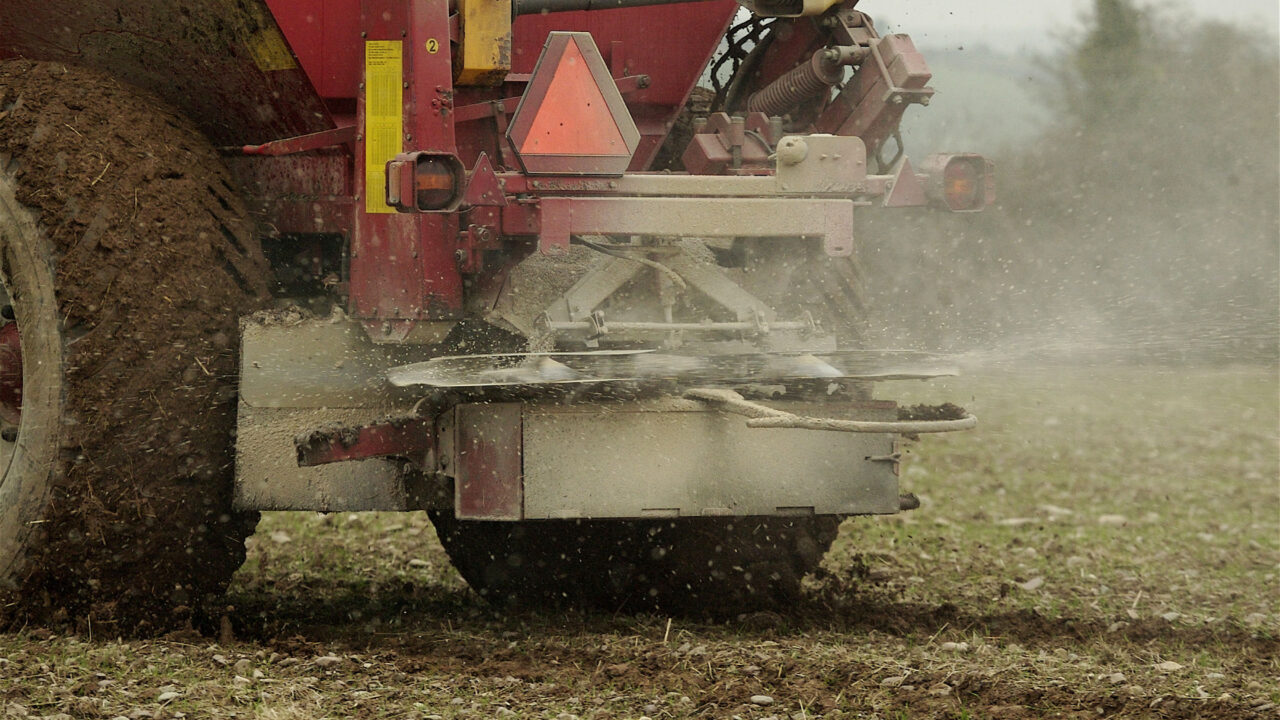Northern Ireland politicians appear to have turned their backs on offers to meet farmers to discuss a bill that will legislate net-zero emission targets for the region within 25 years.
Ulster Farmers’ Union deputy president David Brown said it was “clear MLAs lack understanding” about the consequences of the bill, warning it would decimate
Representatives of the five main parties who co-signed the bill (Sinn Féin, SDLP, Alliance Party, Ulster Union Party, and the Green Party), as well as three independents were invited to attend. The DUP was the only major local party not to be invited as it had not co-signed the bill.
The three others invited were Claire Sugden, Gerry Carroll and Trevon Lunn.
However, just two of the region’s politicians attended, along with one sending a representative, with most of the parties not represented at all.
Who attended?
A UFU spokesman said: “Yesterday (April 22), members of the Ulster Farmers’ Union environment committee, took time away from their farm business during the busiest period in the farming calendar, to meet virtually with MLAs who are supporting the Private Member’s Bill.
“To their disappointment, only Clare Bailey (Green Party), Mark Durkan (Social Democratic and Labour Party) and a representative for Claire Sugden (independent) set time aside to listen to the genuine concerns of Northern Ireland farmers.”
The meeting took place at 2:30pm to follow the Stormont Agriculture Committee meeting.
Agriland understands the UFU received apologies from both Alliance and Sinn Fein shortly before the meeting was due to take place, but, at the time of publication, had received no response from the UUP. Both the Alliance Party and Sinn Féin have sought to reschedule the meeting with the union.
UFU deputy president David Brown said: “Our UFU environment committee is made up of farmers from every sector across NI and yesterday they were representing our wider UFU membership on the matter of climate change – the most pressing issue globally, at this point in time.
“It’s extremely regrettable that only two MLAs participated in the meeting which was set up to allow our farmers to engage directly with local politicians who are in support of the Private Member’s Bill.
“It was our farmers’ opportunity to highlight why the proposals are going to be so significantly detrimental to the NI’s agri-food industry while having a knock-on effect on rural communities that will be hit hard if the proposals are legislated.
“The UFU will be following up with other MLAs who did not participate in the meeting in the coming days.”
However, a spokesperson for the UUP said: “A delegation of Ulster Unionist MLAs led by the party leader, Steve Aiken, met with the UFU – including the president – last Friday (April 16) to discuss the union’s concerns regarding the Private Member’s Climate Bill. We look forward to continued engagement going forward.”
Is net-zero achievable for NI?
In a statement issued after the meeting, the UFU environment committee explained farmers were willing to take action to reduce emissions.
However, the committee stressed that the legislative framework must be fair and balanced, supporting NI farmers to reduce emissions without restricting or lessening their ability to produce high-quality food.
DAERA officials have previously warned the Stormont Agriculture Committee that setting unrealistic targets in legislation could simply result in emissions being off-shored to parts of the world with lower agricultural standards.
Brown added: “New information from the Climate Change Committee (CCC) has set out that even with a 50% cut in meat and dairy production and an increase in forestry, this would still not be enough for NI to hit net-zero by 2050.
“Abolishing half of the meat and dairy industry is totally unacceptable. Our members emphasised that this could result in 50,000 job losses in NI and would be the ruination of our livestock sectors, both of which are major driving forces within agriculture, one of our most successful industries. Not to mention how it would affect other areas such as tourism and recreation.
“Our members have key concerns about the lack of evidence supporting the proposed 2045 target. No economic impact assessment and no rural needs assessment has been carried out. When legislation is put forward by any of our ministers, all of these assessments must be completed before the bill is passed. These assessments have their purpose and having skipped this process, it’s clear that our MLAs lack understanding about the consequences of this bill.
“Throughout the pandemic, it was reiterated constantly about the need to follow data and advice during the Covid-19 pandemic. However, on this occasion, our MLAs are clearly ignoring the expert advice from the CCC, which is outlining that a net-zero target before 2050 cannot credibly be set for NI.
“Our politicians need to listen to the expert advice presented to them and focus on achieving climate change legislation that is fair and will deliver emissions reductions. Our farmers are not the problem, they are part of the climate change solution,” said Brown.
